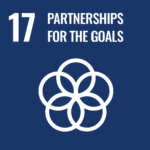About Organisation
The Science and Engineering Research Board (SERB) is a statutory body under the Department of Science and Technology (DST), Government of India. Established to strengthen the research ecosystem in the country, SERB supports scientific research by providing financial assistance, promoting collaborations, and encouraging high-quality research in emerging and priority areas. It plays a pivotal role in enabling research across disciplines and facilitates innovation through grants, fellowships, and capacity-building initiatives. The board works closely with scientists, academic institutions, and industries to foster research excellence and address national priorities. As part of its broader mandate, SERB supports programs that integrate traditional knowledge systems with modern scientific approaches. The organisation aims to build research capabilities, generate new knowledge, and contribute to socio-economic development by promoting scientific inquiry. SERB’s focus on interdisciplinary research helps bridge the gap between conventional practices and contemporary science. Through programs like the Ayurvedic Biology initiative, SERB is facilitating research that aligns with India’s cultural heritage and knowledge systems while advancing scientific understanding, healthcare solutions, and policy-driven innovation. Its continued investment in scientific exploration strengthens India’s position as a hub for advanced research and sustainable development.
About the Grant
The Ayurvedic Biology (AB) grant is a specialized research initiative designed to integrate scientific inquiry with Ayurvedic knowledge. The program supports research projects that investigate traditional concepts, procedures, and products from Ayurveda using tools and methodologies from modern basic sciences. The objective is to deepen the understanding of Ayurvedic principles and explore their relevance to health, disease management, and overall well-being. The program promotes research in areas such as human genomics, immunology, physiology, and nutrition in relation to Ayurveda’s practices like Panchakarma and Rasayana therapies. It encourages rigorous scientific studies aimed at validating and expanding Ayurvedic treatments and formulations. The grant aims to nurture interdisciplinary research, capacity building, and institutional growth by offering financial support, infrastructure development, and training opportunities. It is aligned with national priorities in healthcare innovation and aims to bridge gaps between traditional healing systems and contemporary biomedical sciences. The program also encourages collaborations between Ayurveda practitioners and researchers to create new evidence-based approaches for health interventions. Through this grant, researchers are empowered to undertake long-term projects that contribute to scientific knowledge while preserving and modernizing India’s traditional health sciences for global relevance.
Who can Apply?
The Ayurvedic Biology grant is open to Indian citizens residing in India who are engaged in academic or research activities. Applicants must hold a regular position in a recognized research or academic institution, such as a university, college, or research centre. Both individual researchers and teams of investigators are eligible to apply, provided they meet the necessary qualifications and can demonstrate the capacity to undertake high-quality research. In cases where multiple researchers collaborate on a proposal, one investigator must be designated as the Principal Investigator (PI), responsible for leading the research, managing the grant, and coordinating team efforts. Co-investigators are also permitted to participate, allowing multidisciplinary expertise to be incorporated into research projects. The program encourages proposals that integrate Ayurveda’s knowledge systems with scientific disciplines like molecular biology, nutrition, and immunology. The proposals should align with the objectives of exploring health, disease mechanisms, and therapeutic interventions using evidence-based approaches. Institutions applying for the grant must demonstrate infrastructure, academic capabilities, and administrative support to execute the project successfully. The program particularly welcomes proposals from early-career researchers and established scientists willing to collaborate across disciplines to enhance the understanding and validation of Ayurvedic practices.
How to Apply?
Interested applicants must register on the grant portal by providing personal and institutional details. All mandatory fields in the profile section should be completed. Co-investigators, if any, should also be registered. The proposal should be submitted according to the guidelines provided in the application form, clearly outlining the research objectives, methodology, and expected outcomes. The proposal will then be reviewed by the Task Force for approval.
Application Deadline
Proposals can be submitted at any time throughout the year. However, they are reviewed only twice annually by the Task Force, which finalizes the selection process based on merit.
Last Date To Apply
For more information, visit grant website here









